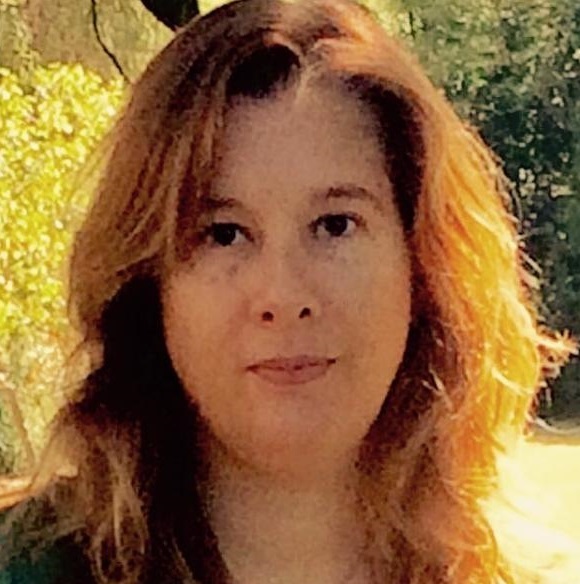From Learner to Leader: Mastering Your Skills as an ACT Teacher and Trainer





Miranda Morris, Ph.D.
Jenna LeJeune, Ph.D.
Manuela O'Connell, Lic.
Wednesday, July 15, 2020 - 9:00 a.m. - 5:15 p.m.
Interested in teaching or training ACT but don’t know how to proceed? Already teaching ACT and hoping to enhance your skills? The central mission of ACBS is to disseminate contextual behavioral science in the service of the alleviation of human suffering. We need skillful, effective, values-driven teachers and trainers in ACBS. There is also a strong need for a greater diversity of voices among those doing ACT trainings and teaching ACT courses as the ACBS community is striving to become more inclusive and diverse.
While there are many workshops available to train practitioners in the delivery of ACT, there are none - to our knowledge - to train teachers and trainers. A considerable proportion of ACBS members endorse “teaching and training” as a professional activity, so we have an opportunity to expand our reach in spreading CBS worldwide. This workshop is designed to support current and would-be ACT/CBS teachers and trainers from all backgrounds to broaden your skill set and to identify and move forward with your own values-based teaching and training goals.
External barriers(e.g., lack of knowledge or skill) and internal barriers (e.g., lack of confidence) have been shown to contribute to a lack of innovation in education (Schoepp, 2005). Our training team, which consists of four experienced peer-reviewed trainers, will utilize ACT processes to help you address these barriers. This workshop will incorporate research that suggests that experiential learning in which trainees practice applying therapy principles and techniques on themselves increases results in enhanced learning (Bennett-Levy, 2001). For example, you will work through a personal ACT case conceptualization regarding your own narratives, experiential avoidance, and professional values related to teaching and training ACT. Throughout the training, we will engage in experiential practices aimed at increasing psychological flexibility around some of the most common difficulties encountered by both novice and experienced teachers and trainers alike (Walser & Westrup, 2006) (e.g. fusion with thoughts of “I’m not expert enough,” experiential avoidance when it comes to covering more challenging material such as RFT in trainings, etc.). More specifically, in this preconference you will learn:
- To utilize impactful, memorable teaching methods, with special attention to teaching difficult concepts (e.g., functional contextualism, relational frame theory) in accessible ways
- How to create, guide, and unpack experiential practices within a teaching/training context
- What it means to ‘live ACT’, embody the ACT therapeutic stance, and practice psychological flexibility in the context of teaching and training (including informed consent, managing the classroom, handling challenging participants, and handling mistakes and/or surprises).
- The importance of providing culturally sensitive and relevant teaching and training and evidence-based strategies for how best to do so (Hayes, et al, 2004; Sobczak & West, 2013).
- Describe how to teach ACT flexibly in different settings with varying audiences (e.g., 1 hr didactic vs 2 day workshop; grad students vs licensed clinicians, professionals vs general public)
- How to adapt trainings based on modality and audience (e.g., 2-day workshops vs 1 hr talks; first year graduate students vs licensed clinicians)
Bennett-Levy, J., Turner, F., Beaty, T., Smith, M., Paterson, B., Farmer, S., Cook, J. (2001). The value of self-practice of cognitive therapy techniques and self-reflection in the training of cognitive therapists. Behavioural and Cognitive Psychotherapy, 29(2), 203-220.
Hayes, S. C., Bissett, R., Roget, N., Padilla, M., Kohlenberg, B. S., Fisher, G., ... & Niccolls, R. (2004). The impact of acceptance and commitment training and multicultural training on the stigmatizing attitudes and professional burnout of substance abuse counselors. Behavior Therapy, 35(4), 821-835.
Schoepp, K. (2005). Barriers to technology integration in a technology-rich environment. Learning and Teaching in Higher Education: Gulf Perspectives, 2(1), 1-24.
Sobczak, L. R., & West, L. M. (2013). Clinical considerations in using mindfulness-and acceptance-based approaches with diverse populations: Addressing challenges in service delivery in diverse community settings. Cognitive and Behavioral Practice, 20(1), 13-22.
Walser, R. D., & Westrup, D. (2006). Supervising trainees in acceptance and commitment therapy for treatment of posttraumatic stress disorder. International Journal of Behavioral Consultation and Therapy, 2(1), 12-16.
About Jill Stoddard, Ph.D.:
Jill Stoddard is a clinical psychologist and founder/director of The Center for Stress and Anxiety Management, a multi-site outpatient psychotherapy clinic specializing in evidence-based treatments for anxiety and related issues. Dr. Stoddard received her Ph.D. in clinical psychology from Boston University where she trained at the highly regarded Center for Anxiety and Related Disorders. She completed her APA accredited internship and post-doctoral fellowship at UCSD’s School of Medicine Department of Psychiatry. She is an author, award-winning teacher, and peer-reviewed ACT trainer. She has coauthored articles on ACT, CBT, anxiety, trauma, and pain. She also coauthored The Big Book of ACT Metaphors: A Clinician’s Guide to Experiential Exercises and Metaphors in Acceptance and Commitment Therapy; her second book, Be Mighty: A Woman’s Guide to Mastering Anxiety, Worry, and Stress Using Mindfulness and Acceptance, will be published in January 2020. She is on the board of the Association for Contextual and Behavioral Sciences, is a co-founder and vice-president of the non-profit San Diego Cognitive Behavioral Therapy Consortium, and is a member of the Association for Behavioral and Cognitive Therapies and the Anxiety and Depression Association of America.
About Miranda Morris, Ph.D.:
Miranda Morris, Ph.D. is the founder of DC ACT, an organization that provides training and consultation in ACT and other contextual behavioral therapies. She is a peer-reviewed ACT Trainer and has conducted workshops in the US and abroad. She co-founded the Mid Atlantic Chapter of ACBS (MAC ACBS), a group committed to disseminating contextual behavioral science and to building a strong ACBS community in the Mid Atlantic. In addition, she currently serves on the Executive Board of the Association for Contextual Behavioral Science (ACBS) and is President Emeritus of the Mid-Atlantic Chapter of the ACBS. Miranda is a licensed psychologist in private practice in Bethesda, MD. She treats a broad range of difficulties including anxiety, OCD, depression, trauma, relationship problems, and pervasive difficulties often referred to as 'personality disorders'.
About Jenna LeJeune, Ph.D.:
Jenna LeJeune, Ph.D. is President and co-founder of Portland Psychotherapy Clinic, Research, and Training Center. She currently serves on the ACBS Training Committee. As a peer-reviewed ACT trainer who provides trainings for professional around the world, Jenna has a strong interest in presenting ACT and CBS processes in such a way as to make them accessible and relevant to a wide range of audiences. She is co-author of the book Values in Therapy: A Clinician’s Guide to Helping Clients Explore Values, Increase Psychological Flexibility, and Live a More Meaningful Life (2019). In her clinical practice, Jenna specializes in working with adults struggling with various relationship difficulties, including problems with intimacy and sexuality, trauma-related relationship challenges, and struggles people may have in their relationship with their own bodies.
About Manuela O'Connell, Lic.:
Peer reviewed ACT trainer. Clinical psychologist specialize in ACT and Mindfulness. Does trainings in different countries in South America and in several places in Argentina. Author of the ACT for the public book written in Spanish called Una vida valiosa by Penguin Random House. Contributor in The heart of ACT book.
Learning Objectives:
Following this workshop participants will be able to:
- Identify personal strengths, growth areas, and values for yourself as a teacher/trainer utilizing a Self Case Conceptualization based on a psychological flexibility model
- Distinguish between didactic and experiential teaching methods and explain the relative merits of each
- Create, guide, and process experiential learning exercises
- Describe how to teach ACT flexibly in different settings with varying audiences (e.g., 1 hr didactic vs 2 day workshop; grad students vs licensed clinicians)
- Demonstrate how to teach technical concepts such as functional analysis, functional contextualism, and RFT in effective and accessible ways
- Demonstrate strategies for responding effectively to challenging participants and circumstances (e.g., exercises that don’t go as planned, equipment failures)
- Explain at least 3 ways to cultivate cultural sensitivity and inclusivity in your training approach
- Demonstrate an understanding of the core competencies for becoming a well-rounded teacher/trainer of ACT - the Heart, Hands and Head of ACT
- Demonstrate how to both teach and model the 6 core psychological flexibility processes in a classroom or training setting
- Explain the value of teaching ACT as a process-driven approach rather than a technique-driven approach
Target Audience: Intermediate, Advanced, Clinical
Components: Experiential exercises, Didactic presentation, Case presentation, Role play
Package Includes: A general certificate of attendance, lunch, and twice daily coffee/tea break on site.
